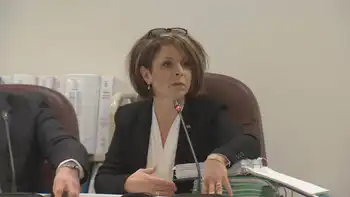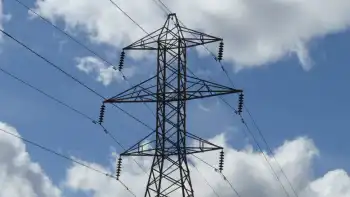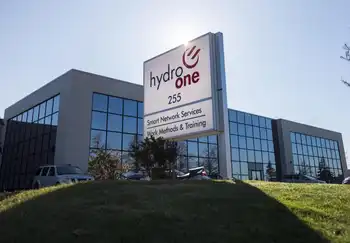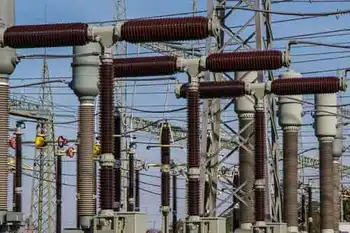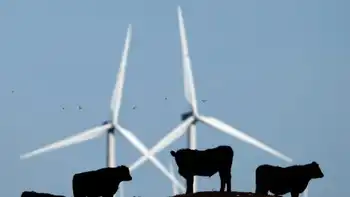US Utilities Shift From Coal as natural gas stays cheap, renewables like wind and solar scale, Clean Power Plan uncertainty lingers, and investors, state policies, and emissions targets drive generation choices and accelerate retirements.
Key Points
A long-term shift by utilities from coal to cheap natural gas, expanding renewables, and lower-emission generation.
✅ Cheap natural gas undercuts coal on price and flexibility.
✅ Renewables costs falling; wind and solar add competitive capacity.
✅ State policies and investors sustain emissions reductions.
When President Donald Trump signed an executive order last week to sweep away Obama-era climate change regulations, he said it would end America's "war on coal", usher in a new era of energy production and put miners back to work.
But the biggest consumers of U.S. coal - power generating companies - remain unconvinced about efforts to replace Obama's power plant overhaul with a lighter-touch approach.
Reuters surveyed 32 utilities with operations in the 26 states that sued former President Barack Obama's administration to block its Clean Power Plan, the main target of Trump's executive order. The bulk of them have no plans to alter their multi-billion dollar, years-long shift away from coal, suggesting demand for the fuel will keep falling despite Trump's efforts.
The utilities gave many reasons, mainly economic: Natural gas - coal’s top competitor - is cheap and abundant; solar and wind power costs are falling; state environmental laws remain in place; and Trump's regulatory rollback may not survive legal challenges, as rushed pricing changes draw warnings from energy groups.
Meanwhile, big investors aligned with the global push to fight climate change – such as the Norwegian Sovereign Wealth Fund – have been pressuring U.S. utilities in which they own stakes to cut coal use.
"I’m not going to build new coal plants in today’s environment," said Ben Fowke, CEO of Xcel Energy, which operates in eight states and uses coal for about 36 percent of its electricity production. "And if I’m not going to build new ones, eventually there won’t be any."
Of the 32 utilities contacted by Reuters, 20 said Trump's order would have no impact on their investment plans; five said they were reviewing the implications of the order; six gave no response. Just one said it would prolong the life of some of its older coal-fired power units.
North Dakota's Basin Electric Power Cooperative was the sole utility to identify an immediate positive impact of Trump's order on the outlook for coal.
"We're in the situation where the executive order takes a lot of pressure off the decisions we had to make in the near term, such as whether to retrofit and retire older coal plants," said Dale Niezwaag, a spokesman for Basin Electric. "But Trump can be a one-termer, so the reprieve out there is short."
Trump's executive order triggered a review aimed at killing the Clean Power Plan and paving the way for the EPA's Affordable Clean Energy rule to replace it, though litigation is ongoing. The Obama-era law would have required states, by 2030, to collectively cut carbon emissions from existing power plants by 30 percent from 2005 levels. It was designed as a primary strategy in U.S. efforts to fight global climate change.
The U.S. coal industry, without increases in domestic demand, would need to rely on export markets for growth. Shipments of U.S. metallurgical coal, used in the production of steel, have recently shown up in China following a two-year hiatus - in part to offset banned shipments from North Korea and temporary delays from cyclone-hit Australian producers.
RETIRING AND RETROFITTING
Coal had been the primary fuel source for U.S. power plants for the last century, but its use has fallen more than a third since 2008 after advancements in drilling technology unlocked new reserves of natural gas.
Hundreds of aging coal-fired power plants have been retired or retrofitted. Huge coal mining companies like Peabody Energy Corp and Arch Coal fell into bankruptcy, and production last year hit its lowest point since 1978.
The slide appears likely to continue: U.S. power companies now expect to retire or convert more than 8,000 megawatts of coal-fired plants in 2017 after shutting almost 13,000 MW last year, according to U.S. Energy Information Administration and Thomson Reuters data.
Luke Popovich, a spokesman for the National Mining Association, acknowledged Trump's efforts would not return the coal industry to its "glory days," but offered some hope.
"There may not be immediate plans for utilities to bring on more coal, but the future is always uncertain in this market," he said.
Many of the companies in the Reuters survey said they had been focused on reducing carbon emissions for a decade or more while tracking 2017 utility trends that reinforce long-term planning, and were hesitant to change direction based on shifting political winds in Washington D.C.
"Utility planning typically takes place over much longer periods than presidential terms of office," Berkshire Hathaway Inc-owned Pacificorp spokesman Tom Gauntt said.
Several utilities also cited falling costs for wind and solar power, which are now often as cheap as coal or natural gas, thanks in part to government subsidies for renewable energy and recent FERC decisions affecting the grid.
In the meantime, activist investors have increased pressure on U.S. utilities to shun coal.
In the last year, Norway's sovereign wealth fund, the world's largest, has excluded more than a dozen U.S. power companies - including Xcel, American Electric Power Co Inc and NRG Energy Inc - from its investments because of their reliance on coal-fired power.
Another eight companies, including Southern Co and NorthWestern Corp, are "under observation" by the fund.
Wyoming-based coal miner Cloud Peak Energy said it doesn't blame utilities for being lukewarm to Trump's order.
"For eight years, if you were a utility running coal, you got the hell kicked out of you," said Richard Reavey, a spokesman for the company. "Are you going to turn around tomorrow and say, 'Let's buy lots of coal plants'? Pretty unlikely."
Related News






